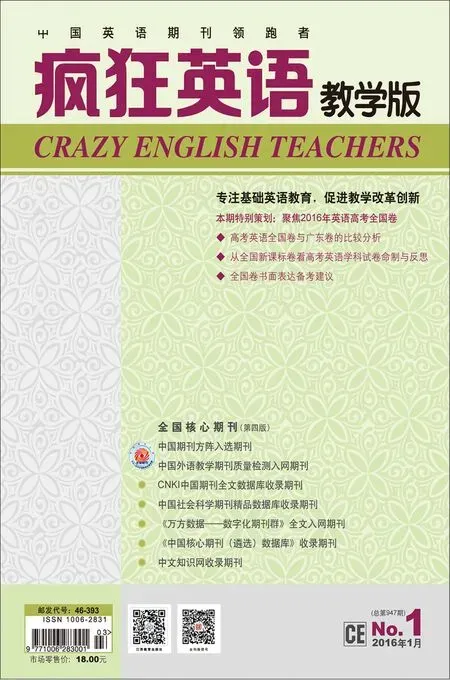Developing Teachers' English
Developing Teachers' English
This series of articles from the British Council aims to help you think about your teaching and to bring new ideas and activities into your classroom. The series covers topics including homework, working with large classes and fnding resources. Today we look at developing teachers' English.
Many teachers would like to improve their English and be able to speak it more confidently in class.

Kuheli, India
Does this problem sound familiar? Do you sometimes worry about your spoken English? It's a worry that lots of teachers have, even if they don't always want to talk about it. There are several things teachers can do to improve their English—here are some suggestions:
Reading books, magazines and newspapers increases your vocabulary.
■ Try to read a variety of texts—news and current affairs, novels and non-fction.
■ You could exchange reading material with other teachers or fnd it in local libraries or markets.
■ Build a bank of vocabulary. Use a dictionary and write new words or expressions in a notebook.
Listening to television, radio, or songs in English can give you lots of language practice.
■ Try to listen to English from various parts of the world to hear different accents and vocabulary.
■ You could invite an English speaker to talk with a group of teachers. If possible record them for listening practice later.
Speaking English with friends and colleagues can really help to build your confdence.
■ Try to organize regular meetings and aim to include some listening, reading and writing as well as speaking.
■ You can talk about your classes and other common interests. One idea is to read an article in advance,make some notes and prepare to talk about it with the group.
■ Concentrate on fluency rather than accuracy when you are speaking.
■ Speaking to yourself in English is also great practice!
Writing a personal journal helps you to write better in English and practice using new vocabulary and grammatical structures.
■ You can write about things that happened during the day, or about an article or a radio programme in English, for example.
Find and make opportunities to use your English and don't always worry about making mistakes! As Daya,a teacher in Nepal, says, “English is not your frst language. You can be a confdent speaker without being perfect.”
What do you think?
Geoffrey from Malawi writes:
I did not have a good formal background in English and lacked confidence so I decided to teach myself. Here is my advice on how you can become a confdent speaker of English:
Firstly, you have to expose yourself to English from whatever source you can fnd. It could be the radio; it could be tourist information leafets.
Read a lot! Read magazines, comics, international newspapers, even local newspapers.
Don't feel embarrassed about yourself when you speak in English. You will only get better at speaking if you continue speaking!
A classroom activity—the word bag
Use this activity to help your students learn and revise vocabulary. Try the same activity if you meet with other teachers to practise English.
■ You need two large envelopes and some pieces of card or paper.
■ Write on one envelope “Blank word cards” and “Class word bag” on the other.
■ Cut up lots of small pieces of card and put them in the “Blank word cards” envelope.
■ Every class, a different student is in charge of the “word bag”. He or she takes the envelopes at the beginning of the class and writes all the new vocabulary on separate blank word cards and puts them into the class word bag envelope. If this isn't practical for your group, the teacher can do this.
■ Use the word bag to revise the words. For example, give each student a card. They fnd a partner and give a defnition of the word. Their partner has to try to guess what the word is.
■ Partners swap cards and fnd a new partner to give a defnition to.
■ Keep swapping partners until everyone has had a chance to speak with several other students.

Glossary
Accuracy is how correctly a learner uses the language.
Fluency is how well a learner communicates meaning—mistakes aren't important.
Revising is practising language that learners have seen previously.
Think about
■ What books and magazines can you fnd to read?
■ What opportunities do you have for regular listening?
■ Can you follow events in the English-speaking world using newspapers, radio or television?
■ Can you fnd good speakers of English to record or to practise with?
■ Could you keep a notebook, and have a dictionary ready, to record and learn new words and expressions?

